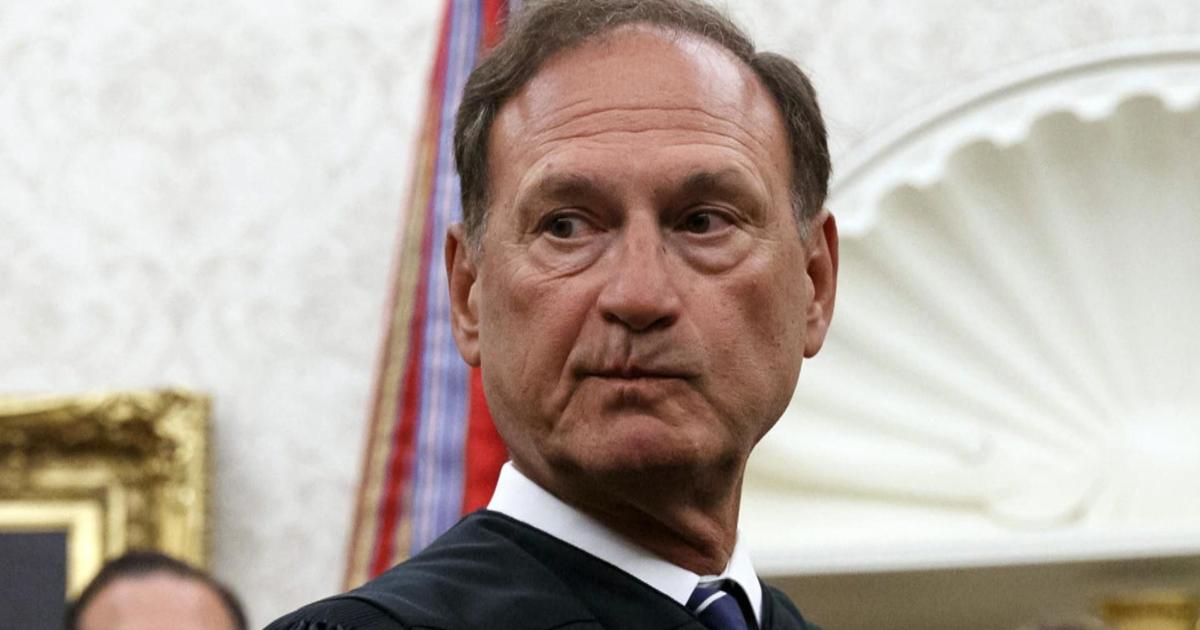Supreme Court Justice Samuel Alito has stated that he will not recuse himself from two Jan. 6 cases, despite calls from congressional Democrats to do so. This comes after reports surfaced that two flags associated with the Capitol rioters were seen flying outside his homes. Alito’s decision was communicated in a letter to the Democrats, in which he rejected their request for recusal. The flags in question were linked to the rioters who stormed the Capitol on January 6, 2021, in a violent attack that resulted in multiple deaths and injuries.
Alito’s refusal to recuse himself from the Jan. 6 cases has sparked controversy and raised concerns about potential conflicts of interest. Some critics argue that his connection to the flags associated with the Capitol rioters could compromise his ability to impartially preside over these cases. However, Alito has defended his decision, stating that he sees no reason to recuse himself and that he will continue to fulfill his duties as a Supreme Court Justice. Despite the controversy surrounding the flags, Alito remains firm in his stance and asserts that he will not step aside from the cases.
The Jan. 6 cases are of significant importance and have drawn widespread attention due to the unprecedented nature of the Capitol riot. As the highest court in the land, the Supreme Court plays a crucial role in interpreting the law and ensuring justice is served. The involvement of Justice Alito in these cases has raised questions about his ability to remain impartial and uphold the principles of justice. The flags associated with the Capitol rioters have added a layer of complexity to the situation and fueled the debate over whether Alito should recuse himself.
Despite the calls for recusal and the controversy surrounding the flags, Alito’s decision to remain on the Jan. 6 cases underscores his commitment to upholding the rule of law. As a Supreme Court Justice, Alito holds a position of immense responsibility and authority, and his decisions can have far-reaching implications. By choosing to stay on the cases, Alito is affirming his belief in the integrity of the judicial system and his dedication to serving justice. While his decision may be met with criticism and skepticism, Alito’s actions reflect his determination to carry out his duties with fairness and impartiality.
In conclusion, Justice Samuel Alito’s refusal to recuse himself from the Jan. 6 cases despite the flag controversy highlights the challenges and complexities of ensuring justice in high-profile cases. The debate over his involvement in these cases underscores the importance of judicial independence and impartiality. As the legal proceedings continue, the Supreme Court will play a crucial role in determining the outcome of the Jan. 6 cases and upholding the principles of justice. Alito’s decision to stay on the cases will undoubtedly be scrutinized, but it also serves as a reminder of the responsibilities and obligations that come with serving on the nation’s highest court.









